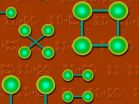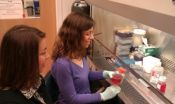(Press-News.org) A Swedish research team partly consisting of researchers from Uppsala University followed a group of prostate cancer patients in the Nordic region for 15 years. The study found, among other things, that surgery reduces the risk that men with prostate cancer (even those with low-risk tumours) will die within 15 years. The results were published today in the New England Journal of Medicine.
The researchers followed Swedish, Finnish and Icelandic prostate cancer patients. Radical prostatectomy (surgical removal of the prostate gland) was performed on 347 randomly chosen male patients, while "watchful waiting" (careful monitoring combined with hormone treatment in cases of disease progression) was pursued with respect to 348 others. The men averaged 65 years of age when diagnosed with prostate cancer.
The results, which were analysed every third year, have significantly impacted how patients are treated today, both nationally and internationally. The study represents the only randomised investigation thus far to demonstrate that surgery reduces the risk of mortality from prostate cancer. The majority of the men had palpable tumours; 12 percent had non-palpable tumours that could only be identified using PSA (a marker for prostate cancer).
After 15 years, 48 per cent of the men in the surgical group had died, against 58 per cent in the watchful-waiting group. Of patients in the surgical group, 16 per cent died due to prostate cancer, against 23 per cent in the watchful-waiting group. The risk of cancer spreading beyond the prostate gland was 12 per cent lower for those who received surgery.
It was primarily younger men who benefitted from surgery. Analysis on the basis of age groups showed that men younger than 65 benefitted most. Among older men, there was no significant difference between the surgical group and the watchful-waiting group, presumably due to the fact that older men run a greater risk of mortality due to other illnesses, on account of which a much larger study would be required to show any difference.
The researchers also studied a group of men with tumours of the least aggressive kind (a low-risk group), even there finding differences in survival rate depending on whether surgery was performed. The low-risk group in question cannot, however, be perfectly compared with currently defined low-risk groups, and better markers will be required to determine the likelihood that low-risk tumours will assume a more aggressive form.
"The study shows that surgery reduces the risk of mortality due to prostate cancer, even for men with low-risk tumours," says Anna Bill-Axelson, chief physician at the Department of Surgical Sciences at Uppsala University. "But not everybody benefits from surgery, so individual risks and potential gains have to be assessed on the basis of age, other illnesses, tumour type and patient preferences."
Another finding of the study is that that surgical patients whose tumours had grown beyond the prostate gland ran a seven-times-greater risk of mortality due to prostate cancer than those whose tumours were limited to the prostate gland. The former group can greatly benefit from adjuvant treatment such as radiation therapy.
The most common side effects of surgical treatment were impotence and incontinence. More patients in the watchful-waiting group required ameliorative treatment due to tumor progression (hormone therapy) after a number of years. Both early side effects due to surgery and late side effects due to ameliorative treatment impact the quality of life of patients and must be part of discussions with patients about treatment options.
The study, designated "SPCG-4" (Scandinavian Prostate Cancer Group Study 4) was financed by the Swedish Cancer Society and, in recent years, also by the National Institutes of Health in the US.
A major study similar to the SPCG-4 study is currently under way in the US, with results expected soon. Another large study, comparing surgical, radiation-therapeutic and watchful-waiting outcomes in connection with localised prostate cancer, is under way in the UK.
INFORMATION:
END
Researchers from the Vienna Center for Quantum Science and Technology at the University of Vienna and the Institute of Quantum Optics and Quantum Information at the Austrian Academy of Sciences used a quantum mechanical system in the laboratory to simulate complex many-body systems. This experiment, which is published in Nature Physics, promises future quantum simulators enormous potential insights into unknown quantum phenomena.
Already the behavior of relatively small quantum systems cannot be calculated because quantum states contain much more information than their ...
CHAPEL HILL, N.C. – Researchers at the University of North Carolina at Chapel Hill School of Medicine, after isolating normal stem cells that form the developing placenta, have given them the same properties of stem cells associated with an aggressive type of breast cancer.
The scientific first opens the door for developing novel targeted therapies aimed at triple negative breast cancer. Known also as TNBC, this is a highly recurrent tumor that spreads aggressively beyond its original site in the breast and carries a poor prognosis for patients who have it.
The study ...
An international team of researchers co-led by a University of Minnesota scientist has sequenced the genomes of two fungal pathogens -- one that threatens global wheat supplies and another that limits production of a tree crop valued as a future source for biofuel.
The sequencing of the genetic codes of wheat stem rust pathogen (Puccinia graminis) and poplar leaf rust pathogen (Melampsora larici-populina) is expected to help researchers develop control strategies to address worldwide threats to wheat fields and tree plantations. The study, which was published this week ...
Know thyself. That was Socrates' advice, and it squares with conventional wisdom. "It's a natural tendency to think we know ourselves better than others do," says Washington University in St. Louis assistant professor Simine Vazire.
But a new article by Vazire and her colleague Erika N. Carlson reviews the research and suggests an addendum to the philosopher's edict: Ask a friend. "There are aspects of personality that others know about us that we don't know ourselves, and vice-versa," says Vazire. "To get a complete picture of a personality, you need both perspectives." ...
As the use of biotechnology increases and more companies move forward with the U.S. Environmental Protection Agency's approval to begin full-scale commercialization of seed mixtures in transgenic insecticidal corn, many researchers believe pest monitoring will become even more difficult.
"Seed mixtures may make insect resistance management (IRM) risky because of larval behavior and greater adoption of insecticidal corn," said David Onstad, professor in the Department of Crop Sciences at the University of Illinois and lead author in a recent article published in the Journal ...
AUSTIN, Texas—Computer networks that can't forget fast enough can show symptoms of a kind of virtual schizophrenia, giving researchers further clues to the inner workings of schizophrenic brains, researchers at The University of Texas at Austin and Yale University have found.
The researchers used a virtual computer model, or "neural network," to simulate the excessive release of dopamine in the brain. They found that the network recalled memories in a distinctly schizophrenic-like fashion.
Their results were published in April in Biological Psychiatry.
"The hypothesis ...
More than 20 percent of atheist scientists are spiritual, according to new research from Rice University. Though the general public marries spirituality and religion, the study found that spirituality is a separate idea – one that more closely aligns with scientific discovery – for "spiritual atheist" scientists.
The research will be published in the June issue of Sociology of Religion.
Through in-depth interviews with 275 natural and social scientists at elite universities, the Rice researchers found that 72 of the scientists said they have a spirituality that is ...
May 5, 2011 – (BRONX, NY) – There are no effective treatments for rhabdoid tumors – aggressive childhood cancers that usually strike children under three years old and affect the brain or kidneys. The disease is extremely rare – fewer than 10 cases are diagnosed each year in the U.S. – but is particularly difficult to treat and almost always fatal.
Now scientists at Albert Einstein College of Medicine of Yeshiva University have identified a target for potential therapies for these tumors: a gene called Aurora A that is vital for tumor growth. The research team was led ...
Researchers at the University of Southampton have designed a new pricing mechanism that could change the way in which electric vehicles are charged.
It is based on an online auction protocol that makes it possible to charge electric vehicles without overloading the local electricity network.
The paper entitled Online Mechanism Design for Electric Vehicle Charging was presented this week at AAMAS 2011 – the Tenth Conference on Autonomous Agents and Multiagent Systems, and outlines a system where electric vehicle owners use computerised agents to bid for the power to ...
Boulder, CO, USA – New research posted online in pre-issue publication on 4 May (corresponding to the June 2011 print issue) includes the first record of shelled amoeba living in association with seafloor seeps of methane; trilobites in North China and Spain; logjams and mountain streams in the Colorado Front Range; the discovery of micrometeorites in 240 million-year-old sediments; a revelation by Integrated Ocean Drilling Program of an extensive microbial community in the deep biosphere; and further study in relation to the L'Aquila (2009), Wenchuan (2008), Sumatra-Andaman ...

